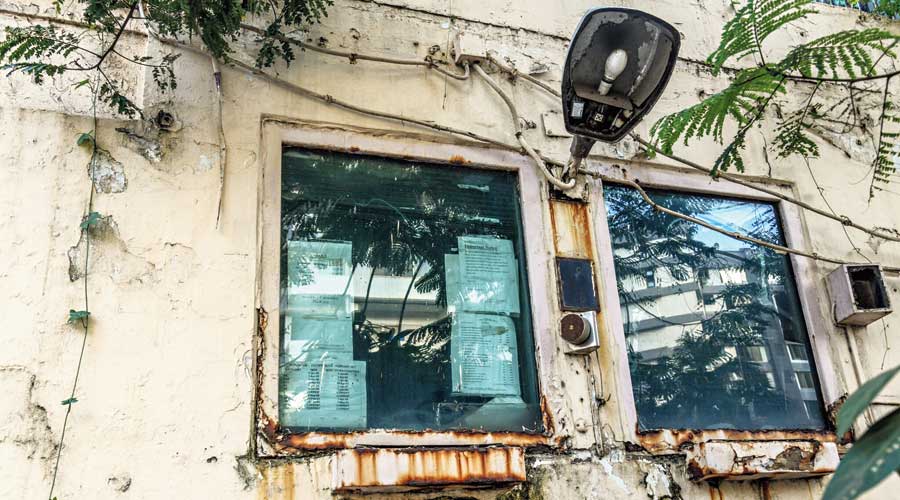Earlier this year, when secretary of state Antony J. Blinken was up for confirmation in Washington, he was hit with a strange question about a piece of property 8,000 miles away on the Arabian Sea.
Lincoln House, a former maharajah’s palace and US consulate in Mumbai, was supposed to have been sold six years ago for $110 million (Rs 819 crore). Ever since, the US has been trying to transfer the property to the Poonawalla family, now among the major makers of Covid-19 vaccines, but for unknown reasons the Indian government has been blocking it.
The dispute is “an unnecessary irritant in bilateral ties,” Senator James E. Risch said in a written question to Blinken during the confirmation hearing. “Do you commit to making the resolution of the Lincoln House issue a priority with India, and to directing the US ambassador to India to do the same?”
“Yes,” Blinken said, and this week he will have a chance to prove his word. He is in India for his first trip to the country as secretary of state, and congressional and administration officials say he intends to bring up this mouldering mansion that is becoming something of a diplomatic black hole.
High level diplomatic correspondence reveals how much attention this single property has consumed.
Former secretary of state Mike Pompeo vented his frustration last year in a letter to India’s foreign minister, writing “the Government of India has never provided us any credible legal response or explanation of why it has blocked the transfer”.
“Regrettably,” Pompeo added, “the Lincoln House saga does not live up to the standards of our relationship.”
A year later, with maintenance bills running up, Lincoln House still sits unsold, its high walls crumbling, paint chipping off, rust streaks running down to the sidewalk, an eyesore. A rambling, haunted-looking, cream-coloured building, it lies in one of Mumbai’s most desirable enclaves — Breach Candy — just a stone’s throw from where soft waves tumble into the shore.
Officials in the administration of Prime Minister
Narendra Modi have met requests to discuss the matter
with impenetrable silence.
More than a half a dozen officials, from the foreign ministry’s chief spokesman to the Mumbai collector to the principal director-general of the Press Information Bureau, which handles queries concerning Modi’s office, declined to comment.
American officials are beyond annoyed. The way they see it, there are no legal reasons to block the sale, and India and the US are supposed to be friends.
US officials interviewed by The New York Times seemed perplexed by the hold-up. They suspect Modi’s government doesn’t like the idea of the US making so much money off the deal, which would be one of the biggest house sales in Indian history. Or possibly the Modi government wants to prevent Lincoln House from going to the Poonawallas, who are not among the handful of Indian billionaires known to be Modi stalwarts. Or maybe officials feel uncomfortable with a foreign government simply selling off an iconic piece of Indian history.
The three-storey mansion was built in the 1930s in Indian-Deco style by the Maharajah of Wankaner, one of the hundreds of princely states that existed under British rule.
M.K. Ranjitsinh was the grandson of the maharajah who built it. “It was very modern for its time,” he said of the home, which had a swimming pool, a cannon out front and a wooden dance floor.
But after Independence in 1947, the maharajahs lost their privileges. The upkeep for the house became too much for a minor aristocrat. So in 1959, the Wankaner family sold the rights to the property (Lincoln House is actually on a 900-year-plus lease) to the American government for Rs 16.5 lakh, which would have been around $350,000 at the time.
In 2011, the US opened a modern consulate in Mumbai. It was time to say goodbye to Lincoln House. A few years later, when it was put on the market, the Poonawallas snapped it up. The family runs the Serum Institute of India, the world’s largest manufacturer of vaccines, based in Pune. With a penchant for Ferraris and racehorses, the Poonawallas are known for living large and said they planned to use the 50,000-square foot space as a weekend home.
In October 2015, India’s foreign ministry gave the US government explicit permission for the deal in a letter saying: “This ministry would like to convey its approval for the sale.”
But soon after, another branch of the Indian government, the defence estates officer, objected, saying the Americans had failed to give notice of the sale and cessation of use of the property within a mandated 20-day period. American officials countered that they hadn’t finalised the transaction or stopped using the property and therefore hadn’t broken rules.
After the Indian government continued to frustrate the sale, many American officials, including two ambassadors and Pompeo, weighed in, arguing that the sale should go through and urging the Modi administration to help make it happen. US senators sent two letters to Modi. They never received a reply.
If the deal is not finalised by the end of August, the Poonawallas have the right to back out, according to the contract. If they do, the American government then faces an expensive question: Now what?
There aren’t too many other buyers who can drop $110 million on a home. And because Lincoln House is a heritage property, it would be difficult to knock it down and redevelop. American officials are beginning to worry it could be a total loss.
New York Times News Service











